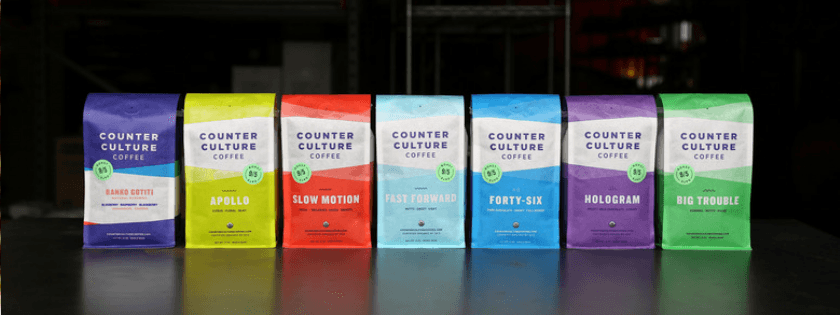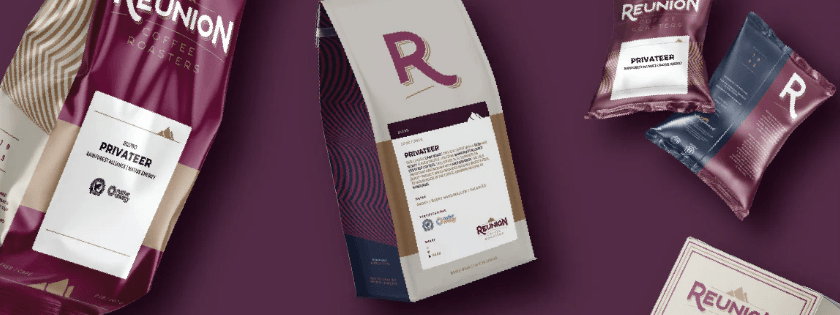Sustainable coffee is a type of coffee that is grown in an environmentally friendly way. It’s not just about being kind to nature; it’s also about giving you a better cup of joe.
The benefits of sustainable coffee include improved taste, fewer environmental impacts, and more ethical production methods. Here, we explain why this type of coffee is so important—and which ones are best for you.
Counter Culture Coffee
 Counter Culture Coffee is a specialty coffee roaster based out of Durham, North Carolina. The company focuses on sustainability and quality in every step of their process from sourcing green coffee beans to delivering the final product. Their commitment to the environment can be seen through their practices that reduce energy consumption, reuse resources like boxes and water in production, and minimize waste. In addition to environmental responsibility, they strive for ethical trading partnerships with farmers and suppliers around the world ensuring fair wages are paid for goods used.
Counter Culture Coffee is a specialty coffee roaster based out of Durham, North Carolina. The company focuses on sustainability and quality in every step of their process from sourcing green coffee beans to delivering the final product. Their commitment to the environment can be seen through their practices that reduce energy consumption, reuse resources like boxes and water in production, and minimize waste. In addition to environmental responsibility, they strive for ethical trading partnerships with farmers and suppliers around the world ensuring fair wages are paid for goods used.
Pros:
- Source high quality organic coffees from communities within Latin America, Africa and Asia that honor sustainable farming techniques
- Utilize direct trade relationships with smallholder producers which result in higher profit margins than traditional market prices
- Operate an energy efficient facility powered by renewable electricity sources such as wind turbines
- Reuse packaging materials whenever possible including cardboard boxes & jute bags for storing green coffee beans
Cons:
- Shipping costs associated with transporting goods from overseas suppliers can increase emissions due to fuel consumption
- Not all products offered are certified organic
Nossa Familia Coffee
 Nossa Familia Coffee is a premium coffee brand with sustainability in mind. Their mission is to create the best cup of coffee while being socially and environmentally conscious. They work directly with farmers around the world, sourcing only high-quality Arabica beans that are sustainably grown using organic farming practices. Through their projects, they strive to help protect rainforests, promote reforestation and carbon sequestration, empower communities through education initiatives, and preserve livelihoods by providing fair wages for workers. The company also works hard to reduce their own emissions by utilizing solar energy in their production process whenever possible.
Nossa Familia Coffee is a premium coffee brand with sustainability in mind. Their mission is to create the best cup of coffee while being socially and environmentally conscious. They work directly with farmers around the world, sourcing only high-quality Arabica beans that are sustainably grown using organic farming practices. Through their projects, they strive to help protect rainforests, promote reforestation and carbon sequestration, empower communities through education initiatives, and preserve livelihoods by providing fair wages for workers. The company also works hard to reduce their own emissions by utilizing solar energy in their production process whenever possible.
Pros
- Only sources high quality Arabica beans from farmers who practice sustainable growing methods
- Supports biodiversity preservation through its efforts to protect rainforest ecosystems
- Works to provide farms with renewable energy options such as solar panels for electricity generation
- Reinvests profits into education initiatives which helps empower local communities
- Offers Fair Trade certified products at competitive prices
Cons
- Some of the beans used may not be fully organic due to limited availability from certain areas
- May not always be able to guarantee 100% fair wages across all partners due to varying market conditions
Reunion Island Coffee Roasters
 Reunion Island Coffee Roasters is a coffee roasting company that strives to produce the highest quality coffee while also being mindful of their environmental impact. Their mission is to provide consumers with an eco-friendly and sustainable product, while supporting farmers in producing exceptional tasting coffee. They source only 100% Arabica beans from countries like Ethiopia, Colombia, Brazil and Costa Rica, which are then roasted using renewable energy sources and fair trade practices.
Reunion Island Coffee Roasters is a coffee roasting company that strives to produce the highest quality coffee while also being mindful of their environmental impact. Their mission is to provide consumers with an eco-friendly and sustainable product, while supporting farmers in producing exceptional tasting coffee. They source only 100% Arabica beans from countries like Ethiopia, Colombia, Brazil and Costa Rica, which are then roasted using renewable energy sources and fair trade practices.
Pros:
• Utilizes only the best quality Arabica beans for an exceptionally smooth taste
• Supports local farmers by providing fair wages and environmentally friendly farming methods
• Uses renewable energy sources for all roasting processes
• Committed to reducing their carbon footprint through sustainable packaging initiatives
Cons:
• Cost may be higher than non-sustainable alternatives
Philocoffee - Eco Friendly Coffee Maker
Philocoffee is a special type of coffee maker that makes it easier for users to enjoy their favorite drinks from the comfort of their home, without sacrificing quality or sustainability. It uses an innovative brewing system to produce fresh aromatic cups of coffee using only organic and eco-friendly materials. This ensures that not only are you getting great tasting coffee but also reducing your impact on the environment by avoiding single use plastic capsules and other forms of waste associated with disposable machines.
The machine has been designed to make it as easy as possible for consumers to make eco friendly choices when enjoying their daily cup of Joe, while still providing excellent flavor and convenience when compared to traditional methods such as French press or manual drip brewers. The unique design was developed through extensive research into sustainable practices, allowing users to reduce the amount of energy they consume while making delicious cup after cup with ease.
Pros:
- Utilizes organic materials in construction
- Optimized brewing process reduces water usage and energy consumption
- Compatible with recyclable or reusable capsules
- Produces high quality beverages quickly and conveniently
Cons:
- Expensive price tag may be prohibitive for some users
- Limited capacity means more frequent refills if producing large amounts
Cafe Mam
 Cafe Mam is an organic, fair trade coffee that has been around for many years. The company prides itself on its mission to promote sustainable growing practices and pay farmers a fair wage for their labor. They also use recyclable packaging and work with local organizations to reduce their carbon footprint.
Cafe Mam is an organic, fair trade coffee that has been around for many years. The company prides itself on its mission to promote sustainable growing practices and pay farmers a fair wage for their labor. They also use recyclable packaging and work with local organizations to reduce their carbon footprint.
Pros
- Certified organic coffee beans are ethically sourced from small-scale farms around the world which supports the livelihood of those farmers.
- Fair Trade Certification ensures that these farms receive a living wage, enabling them to support their families and communities by investing in education, health care and environmental preservation projects in their areas of origin.
- Uses recyclable packaging which reduces waste going into landfills or incinerators.
- Donates a portion of profits to various philanthropic initiatives such as reforestation projects, rainforest conservation efforts, medical services to third world countries etc.
Cons
- It is more expensive than regular coffee due to its organic certification process as well as its commitment towards paying the farmers fairly .
- Shipping costs can be high since it needs comply with cold chain requirements (when shipping products internationally)
What Is Sustainable Coffee?
To understand the importance of choosing sustainable coffee beans, it's helpful to know what they are first. Simply put, sustainable beans are harvested in ways that support natural ecosystems while avoiding negative environmental impacts such as deforestation or the use of harsh chemicals on crops. There are two main types: organic and Fair Trade-certified coffees (the latter guarantees compensation for farmers). Both have their advantages when it comes to producing good-tasting cups with minimal impact on our planet — but how can you be sure you're getting the best option?
Why Choose Sustainable Coffee Beans?
The reason why consumers should choose sustainable coffee has two parts: flavour and sustainability itself. Starting with its impact on your taste buds: sustainably produced beans tend to be fresher since they need fewer chemical inputs during cultivation so there’s less burden on farm workers and local communities too; additionally they don't take away from other habitats like forests (which would otherwise provide food sources or homes for certain species). These reasons alone make them worth considering if trying out new flavours is something that interests you — however, there’s more than meets the eye when looking into whether this type is right for your needs!
When it comes down to their effects on our environment - long-term usage will cause less damage overall compared with non-sustainable options since careful practices ensure soil fertility remains intact & water sources stay clean despite weather conditions or agricultural activities taking place nearby. This means future generations will benefit from healthier land which translates into people having access to healthier foods & products – all thanks to one small step taken today!

Tips For Choosing The Best Sustainable Coffees For You
Now that we've established why sustainable coffees play an important role in maintaining healthy ecosystems let's look at some tips so that everyone can find what works best for them! Here are some things worth considering before buying a bag of beans:
- Know where your beans come from! It may seem obvious but finding out who produced them helps determine accountability standards, human rights policies etc., e.,g do they pay fair wages or use any dangerous chemicals during processing? Is there any evidence showing recycling efforts being made? Also, look out for certification stamps such as "organic" or "Fair Trade." These labels indicate adherence to various laws & regulations ensuring safety both inside/outside workplace environments thus providing peace of mind knowing ethical values were considered before purchasing the product.
- Check roast dates - freshness often dictates quality so avoid selecting batches roasted longer than six months ago as those might lack desired aroma /flavour profiles due to original ingredients losing potency over time – especially true freshly ground varieties whose oils begin to dissipate immediately after grinding process starts up! Additionally, newer formulations tend to contain higher levels of antioxidants and beneficial compounds found naturally within the bean itself thanks to recent harvesting practices employed by suppliers (i.e no artificial additives added to spice up the taste) so always ask questions regarding age before making purchase decisions if possible.
- Look at reviews online - useful resource many times overlooked these days due sheer amount of information available Internet nowadays; nevertheless consumer feedback still provides valuable insight into quality expectations associated with particular brands/varieties making comparison shopping a much easier task when scoping around different stores virtually physically alike! Just remember to favour newer opinions over older ones even though the former might give a slightly biased account situation because sometimes older comments become outdated after time passes & changes occur within the marketplace/industry dynamics involved here.
- Finally consider price point - cost is oftentimes the basis determining value customers assign to a specific item category regardless of whether tangible intangible items are being purchased here 'so conducting research beforehand on costs expected incurred in order obtain desired results result in matters most especially case premium speciality blends which typically pricier than regular run mill selections found supermarkets nationwide usually carry household names like Folgers Maxwell House etcetera… Stick to budget keep track of spending habits well whip your bank balance back in shape again later date : )
Conclusion
Ultimately investing in good quality sustainably sourced beans makes sense economically and environmentally speaking because not only does the high-grade product bring superior tastes palette unlike mass-produced versions on store shelves worldwide also ensures continued healthy farming systems throughout the world without sacrificing flavour front although prices initially appear a bit steeper selection process proactive approach guarantees perfect cup every morning wake claim responsibility helping protect Earth future generations enjoy same luxuries current generation experiencing day day lives.










